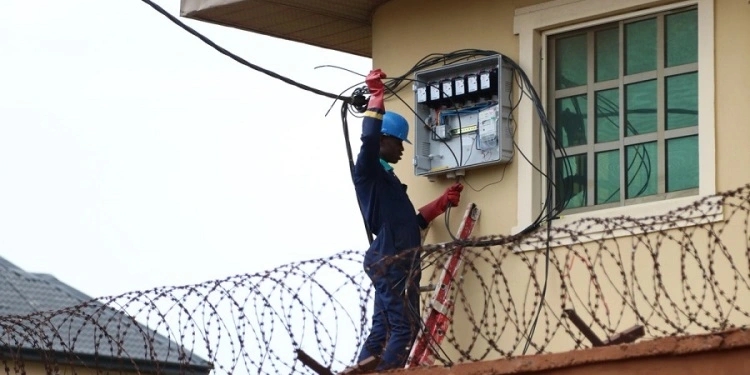- Festus Osifo, President of the Trade Union Congress (TUC), expresses concern over the disparity between the Nigerian government’s call for citizens to tighten their belts and the perceived lack of measures taken by government officials themselves.
- Osifo highlights the hardships caused by fuel subsidy removal and rising inflation, emphasizing the need for government officials to lead by example and navigate the economic challenges faced by ordinary citizens.
- The TUC proposed a new minimum wage of N200,000 during discussions with the government, anticipating the devaluation of the naira and market forces determining the exchange rate.
Festus Osifo, the president of the Trade Union Congress (TUC), expressed deep concern over the disparity between the Nigerian government’s call for citizens to tighten their belts and adapt to the country’s economic challenges, while government officials themselves seem to be exempt from such measures.
During his appearance on Wednesday night via Channels Television, Osifo highlighted the pressing need for the political class to demonstrate their willingness to adjust to the new economic realities that ordinary citizens are grappling with daily.
He specifically pointed out the hardships caused by the removal of fuel subsidies and the alarming rise in inflation, which stood at a staggering 22.41% as of May 2023.
Osifo’s remarks shed light on the apparent disconnect between the demands placed upon the general population and the actions taken by those in power.
He emphasized the importance of government officials leading by example and making visible efforts to navigate and adapt to the prevailing economic challenges faced by the nation.
As Nigeria confronts the formidable task of stabilizing its economy and mitigating the adverse effects of subsidy removal and soaring inflation.
Osifo’s comments underscore the urgent need for a more equitable approach in which both citizens and government officials collectively shoulder the burden and work toward shared solutions.
He said:
- “For example, the convoys. You see governors, they are still going about, business as usual. You see the new legislatures, you see their convoys, it’s endless.
- “Nigerians are facing a lot of hardship; it is really hard, and it is terrible. You are asking the people to tighten their belts but at the end of the day, what have you brought to the table? What is the contribution of the political class to this economic logjam that we are in today as a country?
- “What we are saying is that if the Federal Government was not able to fund subsidy, at whose expense? What were the things they were doing with our funds? All the money that they have borrowed, the ways and means that went over 23 trillion naira – what did they do with it?
- “They need to also explain to Nigerians, not that at the slightest provocation, they push Nigerians to the streets, and they tell them that we must tighten our belt meanwhile they are loosening theirs.”
During the Channels Television interview, Osifo revealed that during discussions with the government regarding assistance measures for the general population, organized labour proposed a new minimum wage of N200,000.
This suggestion was based on their anticipation that the government would devalue the naira and enable market forces to determine the exchange rate of the local currency.
Backstory
Recently, the Revenue Mobilization, Allocation, and Fiscal Commission (RMAFC) proposed a significant 114% salary hike for elected public officials, which would include President Bola Tinubu, his vice, Senator Kashim Shettima, federal and state legislators, governors, and judicial officers.
On June 21, Hassan Usman, a Federal Commissioner of RMAFC, appeared on Arise TV to justify the Commission’s recommendations. He argued that both elected officials and the general population were facing the same economic challenges.
He said:
- “The consumer price index is for everybody, both private and the public. We didn’t increase the allowances all we did was increase the basic salary and then of course the allowances are there the way they are, they are only commensurately percentages of the basic salary.”
What you should know
A former Federal lawmaker, Senator Shehu Sani recently opposed the move by RMAFC, saying that workers should be the focus and not elected public officials. He said:
- “Raising the minimum wage of poor workers should come first before that of the elites holding public offices. With this 114% increase, a Federal Legislator will earn about N2 million monthly salary and N25 million monthly running costs for his office. Money derived from the removal of subsidies should be spent wisely.





















